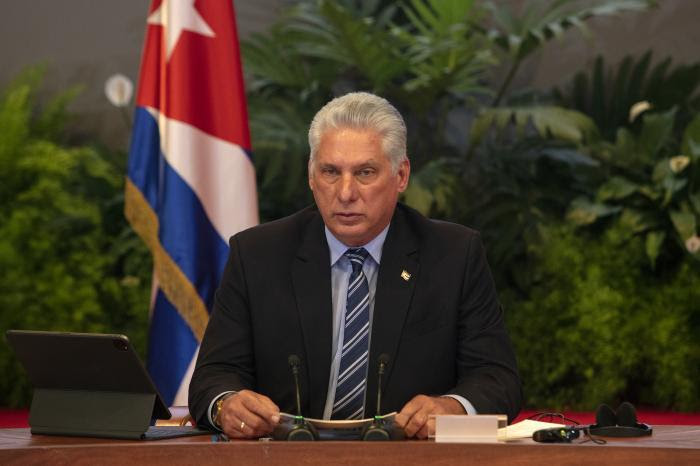Cuba defends its vision of integration and regional cooperation
A big hug, dear Manuel Lopez Obrador, President of the United Mexican States, and I see that you got your way with the idea that the next meeting will be in Mexico(Verbatim version - Presidency of the Republic)
Author: Granma | internet@
A hug also to the Heads of State and Government, to the Vice President of Venezuela, to the Ministers who are leading the delegations participating in this Summit;
Good afternoon everyone.
And thanks to Mexico, which had the initiative to call this summit and invite Cuba.
I well remember, because it was a very special day of high feelings, there in Campeche, when brother Andrés Manuel raised the idea of this summit, while we suggested taking advantage of the opportunity presented by the regional political scenario to launch projects of benefit to the peoples. It was almost mid-February and here we are, gathered to flesh out that idea.
That is the primary merit of this meeting: its sense of the urgency that faces us with the tough challenges of these times. That is why I want to start by urging that we exploit the potential, the capacity and the political will to launch practical measures, without delay, which will have substantial benefits for the well-being of our peoples.
We agree on the proposals for facilitating and expanding the exchange of goods.
I want to add that, apart from the removal of tariffs and other barriers, we can undertake barter trade. This is an attractive basis for Cuba, given the severe restrictions of the blockade and our arbitrary and groundless inclusion on the list of countries which, according to the United States, sponsor terrorism; this seriously hampers our country’s financial relations.
I believe we must also promote the exchange of (essential) services and work together to increase food production in general and that of the basics and essentials in particular, and improve access to these.
Here I want to propose that we immediately take maximum advantage of the installed industrial production capacity in our countries in ways that contribute to complementarity.
By way of example: In Cuba, we have two fertilizer plants but lack the necessary raw materials. To produce NPK, we need phosphorus, nitrogen and potassium. If certain countries agree to supply Cuba with these, we would be in a position to produce fertilizers and export them. On this basis, we place on the market formed by the present group of countries and those that join later, a product essential to food production at a better and more stable price than that imposed on us by the international market.
Another area I think we should work on is the model of technology transfer for food production in which, for example, Argentina is highly developed, as foreign minister Cafiero mentioned at the ministerial meeting.
In the services sector Cuba of course offers its extensive experience, especially in the healthcare field. We have capacity at the level of 1,000 partitioners of comprehensive medicine available to the populations that need them and can also launch programs for dealing with diabetes, impaired vision and other chronic diseases.
I also suggest that we improve the connectivity of our air and sea transportation, to enable effective intra regional supply chains. This will require maximum exploitation of our countries’ logistics and warehousing capacities and will contribute to bringing down freight costs.
We are sure that the proposals and initial measures generated by this meeting will rapidly extend to other countries of Latin America and the Caribbean.
Our commitment to an integrationist vision and to regional cooperation will be the cornerstone of our joint efforts. On this basis, it will be possible also to take advantage of the advances within CELAC.
Cuba’s readiness and commitment is not in doubt. We are very interested in rapid, concrete results. We must not be tardy or wanting while our people wait.
Many thanks.
Translated by ESTI
| ------------------------------------------------------- |

